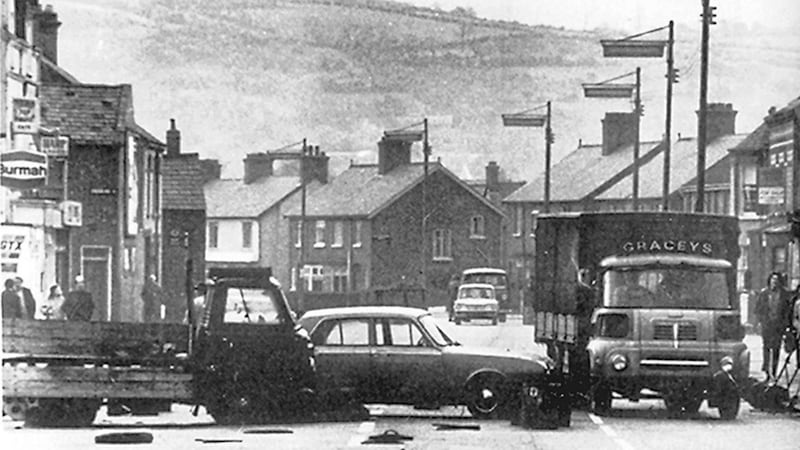Given the celebrations afforded to the 25th anniversary of the Good Friday Agreement and the visit of President Joe Biden to Northern Ireland and the Republic, it is perhaps understandable that a small but significant document released during this period slipped attention.
Reframing the Debate: 25 Challenges for Unionism to Build a Better Northern Ireland has been launched by a small consultative body, The Northern Ireland Development Group. That political unionism in Northern Ireland appears increasingly dysfunctional gives the report added poignancy and urgency.
Collectively the proposed challenges stress the need for a more inclusive and collaborative unionist approach to politics and the overall tone of the report’s content is one critical of political unionism’s inability, or refusal, to envisage and articulate a politics that meets the concerns of all.
The thrust of its detail, however, is a more specific call for good governance, a clear sense of social responsibility, the commitment to a new common good and a strong anti-sectarian ethos, as well as working to build productive relationships not just in Northern Ireland, but with Dublin, the US and Europe.
Those from loyalist communities who took part in the report were particularly vocal about the one-dimensional portrayal that defines them through paramiltarism. They expressed resentment about how working-class communities are seen ostensibly as paramilitary communities and believe that such an image is used by most unionist politicians to avoid helping them address pressing problems in relation to education, housing, health and crime.
These same people also want greater female representation in politics and believe that the expression of hardened identities is made worse by social deprivation and isolation from political decision-making and, in relation, contend that young people should become the driving forces of change since as a post-Troubles generation they are less contained by sectarian attitudes and more open to building the cross-community relationships needed for a better society.
Others from across the social and political spectrum want political unionism to become a ‘consensus-building’ political movement that develops a culture of accommodation, fairness and respect rather than continue with the manipulation of fears about loss and a united Ireland.
Working to create a Northern Ireland for all requires confronting that fear and anxiety with confidence and imagination and challenging the negative stereotypes that reinforce suspicion and hostility. A more positive emphasis is therefore needed that promotes aspiration, pragmatism and creativity using examples of economic development, voluntary sector dynamism, sport and popular culture to promote possibility and change.
Overwhelmingly it was thought that unionist politics has for too long exploited feelings of loss to justify resistance to change more generally and for many this is no longer what they want. Such a politics of crisis and anxiety is seen to stifle progress rather than facilitate it and the tired and predictable discourses of hostility and animosity continue to inhibit the development of much-needed mutual respect.
Central to progression is movement towards reconciliation where differences are seen not as a threat but an asset for progress and transformation. The hybrid identities that are now emerging, where a growing section of the population in Northern Ireland do not see themselves through the limiting frames of one side or the other, indicate shifting priorities and interests that reflect a more complex and multi-faceted society and the respondents want political unionism to reflect that diversity with confidence in policy, articulation and action.
Unsurprisingly, and because of the above, the respondents stressed that most progress that has occurred within unionist and loyalist communities has come about in spite of pro-union politics, not because of it.
Fixations on the past hinder movement and remain unlikely to draw sympathy or interest from those who find little excitement or possibility in this outlook. Take the Protocol. Using arguments that this undermines an Act of Union from over 200 years ago is not going to draw interest from 27 other European states that are unlikely to know what it is and so will have no emotional connection to it.
Yet to articulate that the Protocol undermines reconciliation is much more likely to attract attention. Not only because the EU was founded on the concept, but because the EU has invested many millions of pounds in cross-community reconciliation initiatives across Northern Ireland since the GFA. Legitimate concern about the Protocol is therefore likely to have far greater resonance and sympathy if it connects to now and has future implications that others can relate to.
This reflects a much wider weakness in political unionism that comes from not connecting with those who are less inclined to share its often rigid and exclusive positions. Yet there is now a considerable and growing appetite for a more inclusive, diverse and confident Northern Ireland.
There is a real desire for politics to be focussed on supporting the potential and aspirations of all and as part of that process, alleviating the damage of sectarianism through better education and more respectful dialogue. Unless political unionism responds to meet such concerns its continued demise is not only ensured but the hopes and aspirations of many in Northern Ireland who want and deserve better will remain stymied as a result.
:: Graham Spencer is Professor of Social and Political Conflict at the University of Portsmouth and co-authored the report.


